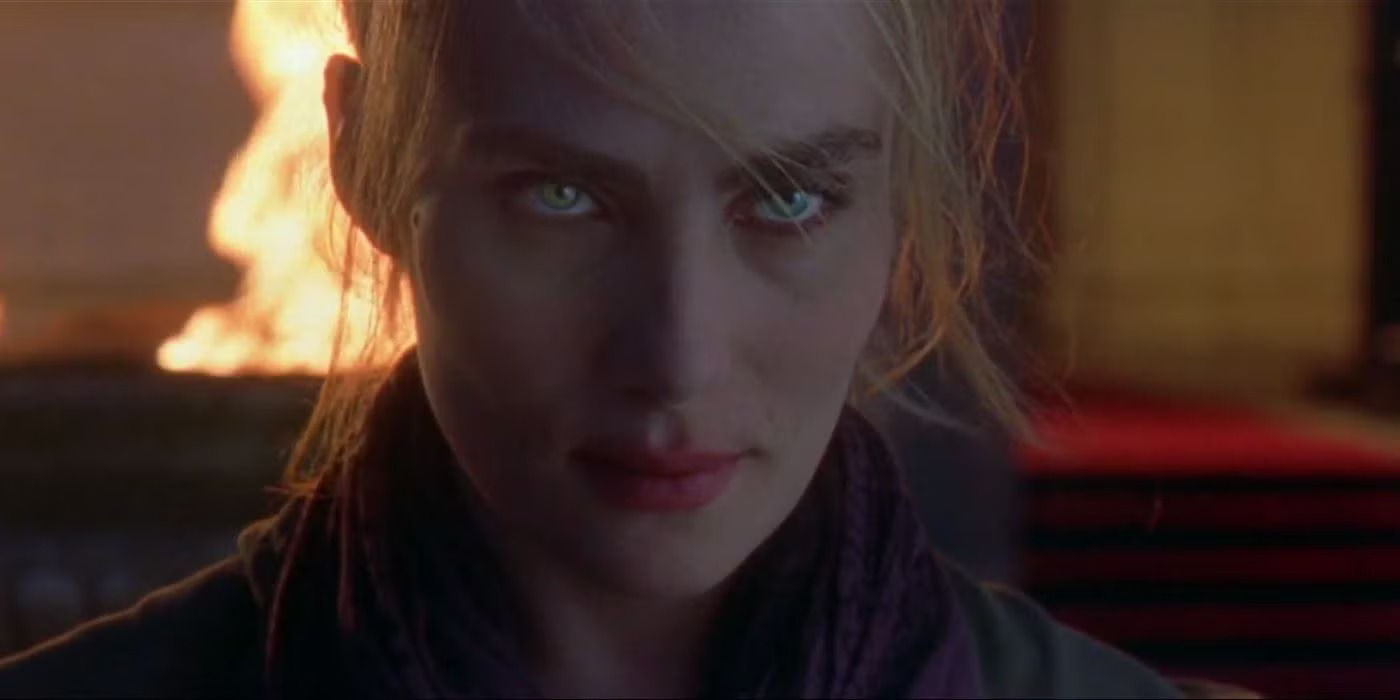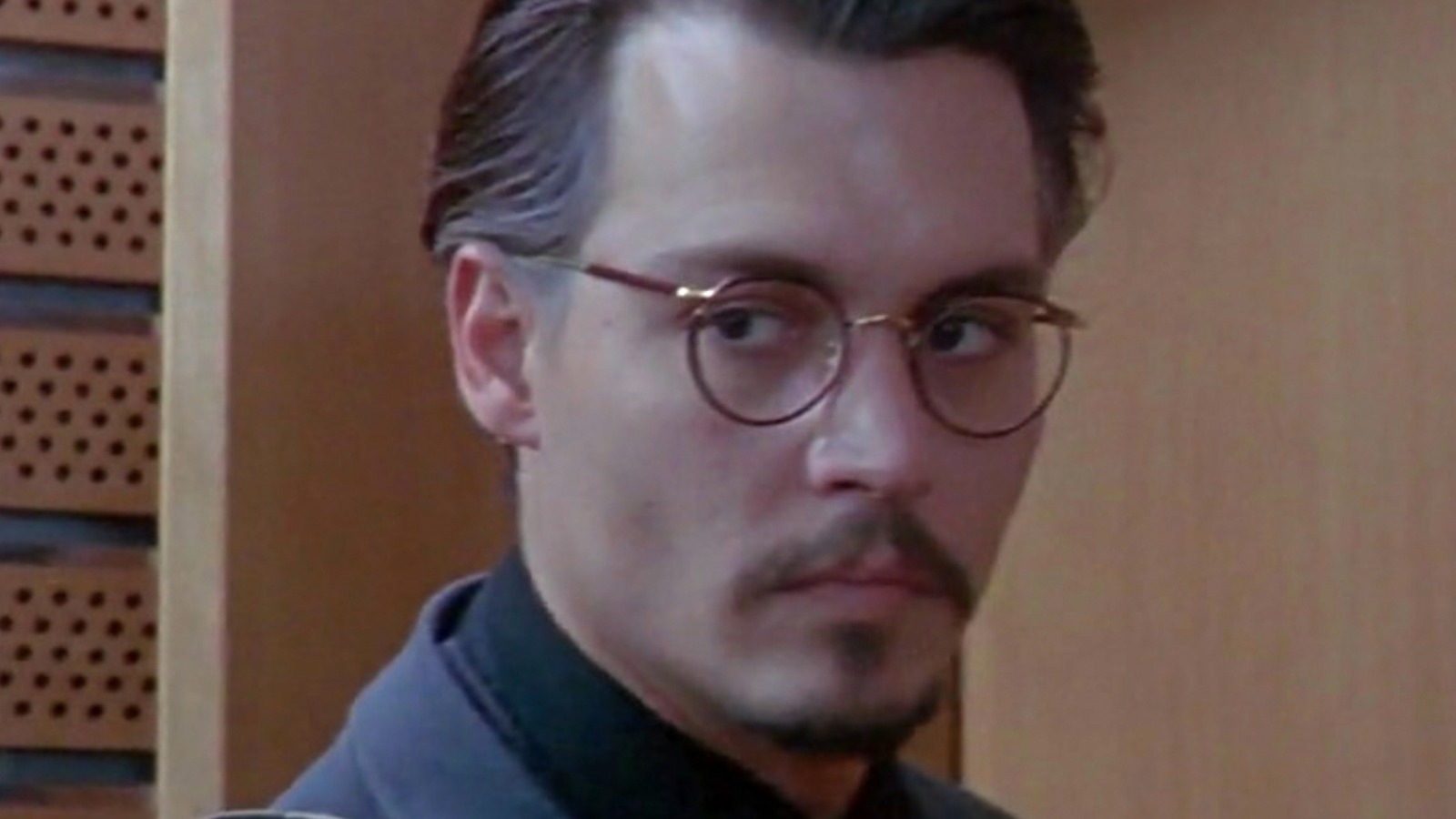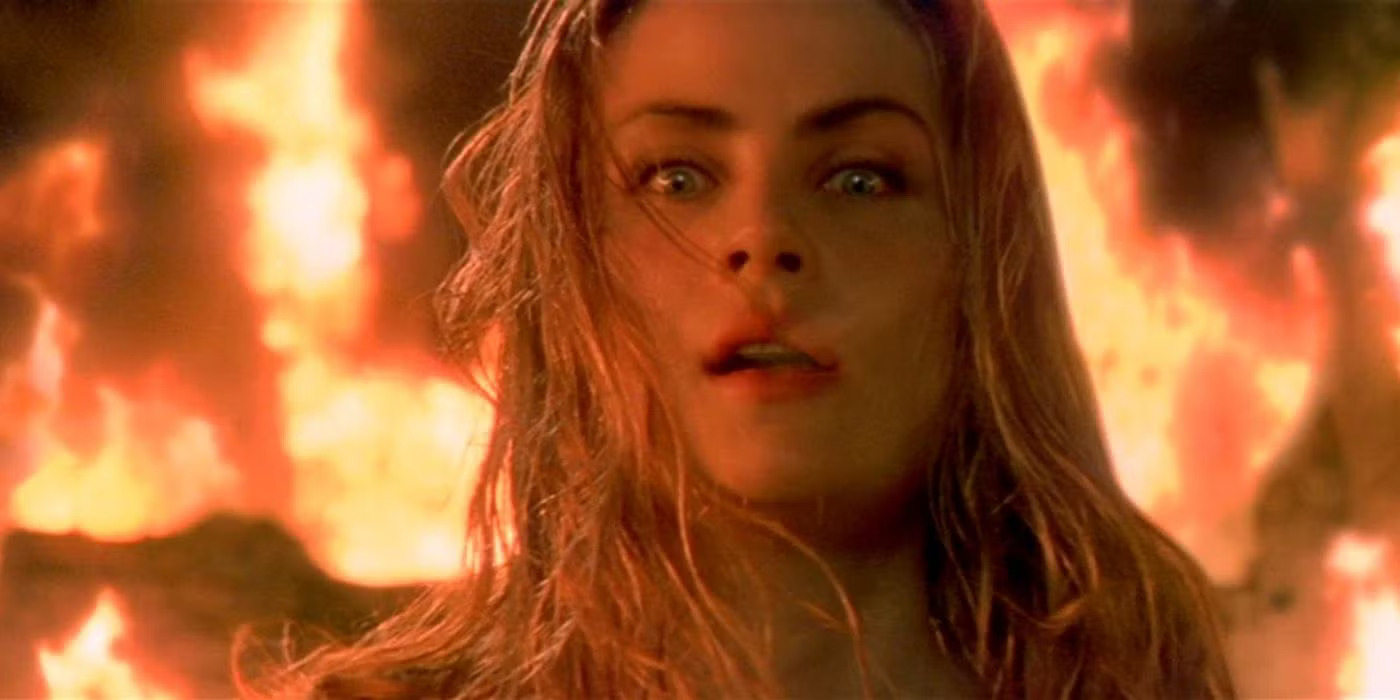Roman Polanski’s 1999 supernatural thriller The Ninth Gate is an adaptation of Arturo Perez-Reverte’s 1993 novel The Club Dumas. The film follows Dean Corso, a morally ambiguous antique book dealer, played by Johnny Depp, who is hired by scholar Boris Balkan (Frank Langella) to authenticate a rare and potentially dangerous book, The Nine Gates of the Kingdom of Shadows. Allegedly written by the Devil, the book’s engravings are believed to hold the key to summoning Satan, and Corso’s investigation plunges him into a world of mystery and danger.
At its heart, The Ninth Gate is a detective story, beginning with Corso’s investigation of the book’s authenticity. Balkan owns one of the three known copies of The Nine Gates, but the engravings inside differ between each book. Corso uncovers that the markings are linked to the Devil and contain clues to a summoning ritual. As he examines the engravings, he realizes that when combined, they form a path leading to Satan, but this raises further questions about the ritual’s validity and its true purpose.

Exploring the Devil’s Existence: Skepticism vs. Supernatural
Corso is initially a skeptic, uninterested in the supernatural and driven purely by monetary gain. His belief in logic clashes with the strange occurrences he witnesses during his investigation. As he delves deeper into the mystery, he begins to encounter supernatural phenomena, particularly through his association with the enigmatic Girl (Emmanuelle Seigner), who exhibits extraordinary powers such as levitation and glowing eyes. Despite this, Corso continues to resist the idea that the Devil and supernatural forces are real, maintaining a rational explanation for his experiences.
Balkan’s obsession with the summoning ritual leads to a dramatic climax when he attempts to complete the ritual in a ring of fire. Despite his conviction that he will not be harmed, he succumbs to the flames after being burned, an apparent failure of the ritual. Corso, witnessing this, begins to question whether the Devil’s power is real or merely a result of human delusion. The ritual’s failure suggests that Balkan may not have been the “chosen one” to summon Satan, but it also leaves lingering doubt about the supernatural’s true nature.
The Girl is a pivotal character in the film, though her identity and motives remain shrouded in mystery. She appears at crucial moments to guide Corso, always seeming to know exactly when and where she is needed. In The Club Dumas, the character is named Irene Adler, a reference to Sherlock Holmes’ famous adversary, hinting at her manipulative nature. The Girl’s supernatural abilities and her recurring appearances suggest that she may not be of this world, with her actions subtly guiding Corso towards the truth of the engravings and the Devil’s existence.
As the investigation unfolds, Corso’s skepticism begins to crumble. While Balkan’s ritual appears to be a failure, Corso soon learns that one of the engravings used in the ritual was a forgery. This realization proves to Corso that the supernatural cannot be dismissed outright.
The missing engraving, which Corso eventually finds, contains a depiction of the Girl, which reinforces the belief that she is connected to the Devil’s power. With the pieces of the puzzle falling into place, Corso is confronted with the idea that the Devil’s power might be real after all.

Corso’s Final Decision and the Ambiguous Ending
The final scenes of The Ninth Gate are open to interpretation, particularly Corso’s actions upon discovering the last engraving. The engraving depicts the Girl astride a multi-headed beast, a striking parallel to the “Whore of Babylon” from the Book of Revelation, suggesting that the Girl symbolizes a powerful and destructive force.
Corso’s greed for knowledge and answers pushes him toward the final gate, where he must decide whether to proceed with the ritual and fully embrace the darkness, or to reject it. The ambiguous ending leaves it up to the viewer to decide whether Corso ultimately succumbs to the Devil or escapes its influence.
Polanski deliberately leaves the ending of The Ninth Gate open-ended, allowing audiences to speculate about Corso’s fate. As he walks toward the light-filled gate in the final scene, it remains unclear whether he has completed the ritual and is about to sell his soul to Lucifer, or if he is merely walking into a metaphorical passage toward personal transformation. The unresolved nature of the ending mirrors the themes of skepticism and belief that permeate the entire film, leaving viewers to wrestle with the question of whether Corso’s journey was one of spiritual doom or liberation.



